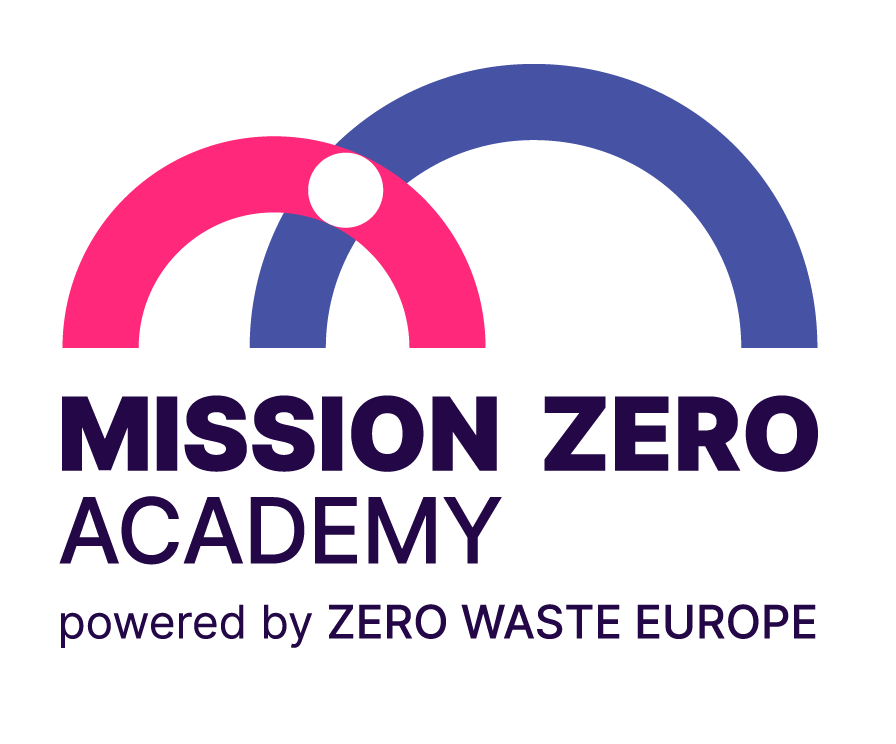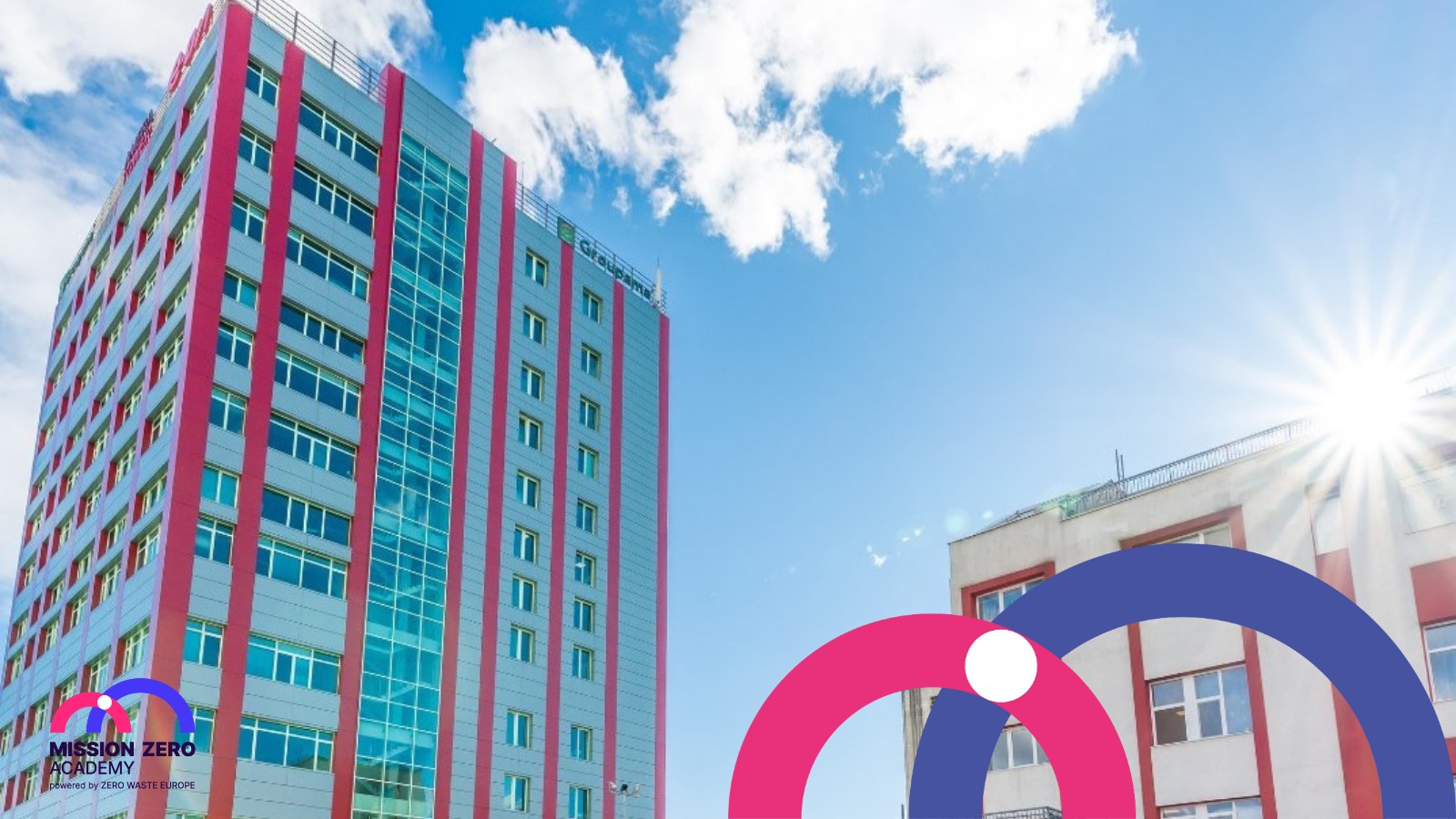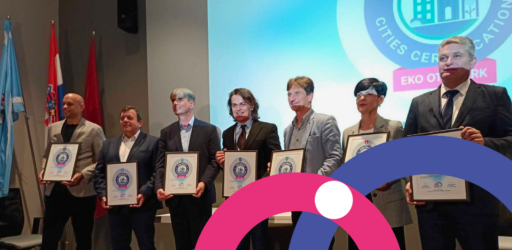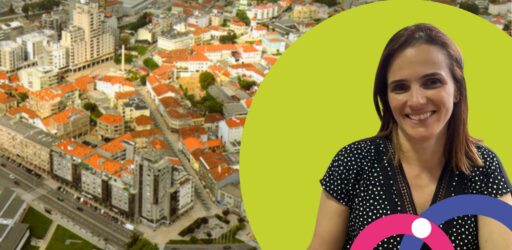Bucharest, February 2021.
Amera Tower building in Cluj Napoca becomes the first zero waste pre-certified building in Romania, following a complex process that included independent monitoring, waste reduction and prevention measures, separate collection system optimisation, internal environmental policies and training for the occupants. As a result, the recycling rate was raised from 6.47% to 77% in just six months.
The Zero Waste Building certification consists of two stages. Stage 1 is the precertification based on adopting commitments, internal policies, reorganisation of the waste collection infrastructure, education and 90-day monitoring and audit of the quantities and quality of the waste generated in the building. This initial stage paves the pay to achieving the key environmental, social and circular economy objectives needed to obtain the final certification.
The certification system is a best practice model at the European and national level and it was conceived in order to eliminate the greenwashing risks, offer a roadmap for all stakeholders involved and guidance in the implementation of the solutions that can lead to achieving the final zero waste objectives, minimum 90% diversion from landfilling and zero waste to energy – incineration.
In the long term, the application of the certification system criteria can contribute to the life quality improvement of the occupants and to the conservation of valuable natural nonrenewable resources.
Prevention of waste generation at source
The prevention measures implemented included: replacing consumption of plastic water bottles with the point of use connected to a utility water supply, replacing all single-use items such as plastic cups and accessories and eliminating the coffee capsules replaced with espresso machines with coffee beans. The coffee ground was separately collected and added to the compost along with the small wood pallets. In addition, the coffee machines in the hallways were reprogrammed to accept reusable cups, to eliminate the need for single-use plastic cups and reduce significantly the use of paper cups – only in situations where external visitors are using the machines.
Advanced 12 fractions waste collection system
Amera Tower collects separately 12 types of waste, instead of five as required by the legislation: PET, other types of plastic, metal, polystyrene, tetra pack, paper/cardboard, glass, used oil, electronic waste, printer toners, biowaste and mixed/residual waste. All existing waste containers were reorganized and properly labelled.
The biowaste humidity was lowered by 20% and the bad smell diminished with the help of aerated containers installed in the eating area.
In addition, paper towels from bathroom areas were collected and recycled – partially added to compost, while the rest of the generated quantities were converted into building insulation. All these measures contributed to achieving a 77% recycling rate.
Training for the building employees
Amera Tower in Cluj Napoca is a building occupied by 550 occupants. The training consisted of the dissemination of a guide, posters, webinars, face to face seminars and newsletters. The people learned about all the solutions implemented during the initial stage of the certification process and about their responsibilities and contribution.
In order to assure the correct and efficient separate collection for the 12 types of waste, the dedicated containers were labeled and detailed instructions were placed in their proximity.
Ongoing monitoring
Besides the interior separate collection infrastructure, the exterior collection platform was optimized as well with additional containers for recyclables. Also, the number of containers for residual waste was reduced. The platform was equipped with a weighing scale and forms, used to measure and document the weekly generated waste.
In addition, RDE Harghita was identified as a recycling company for the commonly non-recyclable plastics such as clean polystyrene and code 7 plastics – hundred of nonrecyclable resins. The recycling company collects and transforms the waste into garden furniture.
The certification process involves independent audit and monitoring from Zero Waste Romania.
Fast amortization of the initial investment
The investment in the optimization of the separate collection, implementation of the prevention measures and consulting were amortized in 7 months. The cost of waste management per employee was reduced by 61.5% as compared to the moment when the precertification process was initiated.
“The investment in the optimization of the collection system was minimal, just a few thousands of lei; in our perception, the most relevant was the change in our attitude and perception. We proved that there’s no need to spend a lot of money to create a truly sustainable work environment”, says Adam Abrus, manager of Amera.
What is the Zero Waste Building Certification?
The Zero Waste building Certification system is an independent evaluation and audit standard originally developed by the Mission Zero Academy (MiZA) and Zero Waste Europe (ZWE) in collaboration with Zero Waste Romania.
Zero Waste Romania serves as the point of contact for Romanian organisations interested in joining this certification programme.
The Certification system addresses key environmental, social and circular economy objectives with impact on communities and buildings. The main objective is the minimisation towards zero of the residual waste generated, at least 90% landfill diversion and zero waste to energy – incineration.





